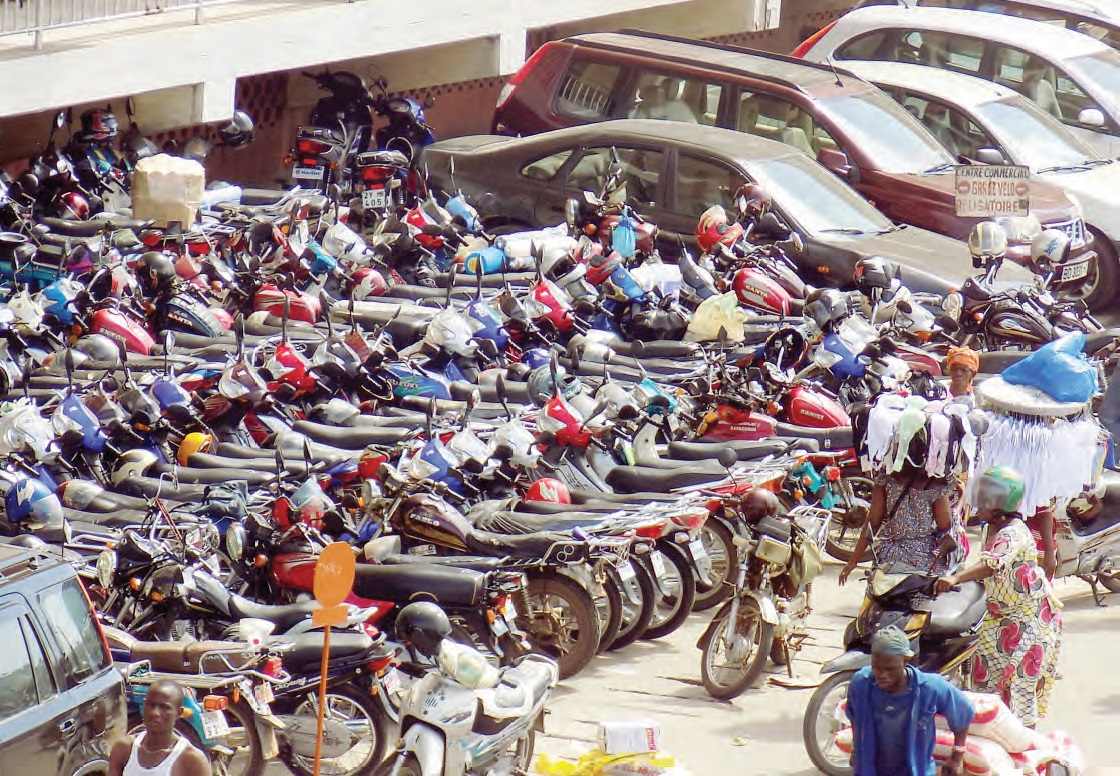About 40,000 Achaba operators in Gombe State have been rendered jobless following the ban on the use of motorcycles as a means of transportation in the state.
Governor Muhammad Inuwa Yahaya had on Monday directed the banning of commercial motorcycles operations throughout the state as part of additional measures to curtail the spread of the coronavirus in the state.
However, the directive which became effective on Tuesday, has thrown the operators out of their means of livelihood, putting them and their families into hardship.
Speaking to North East Trust, the Public Relations Officer of the state chapter of the National Association of Commercial Tricycle and Motorcycle Owners and Riders Association (NACTOMORAS), Kabiru Jafaru, said over 40,000 of their members have been rendered jobless overnight.
He said the association has about 40,000 registered members operating across the 10 local government areas of the state.
“We have 30,000 registered members operating in Gombe metropolis alone, with over 10, 000 others across the 10 local government areas of the state. Majority of them have wives, children and other that relied on them for daily sustenance,” he said.
Jafaru added that though some of their members were alleged to be violating the inter-state boundaries shutdown, the decision to ban their operations without alternative was painful.
The spokesman further said before the ban, the state government had informed leaders of NACTOMORAS of its decision to suspend ‘achaba’ operations, pending when the COVID-19 will be contained in the state.
He, therefore, called on government to come to their aid with assistance to reduce their suffering, “because our members have complied with the directives and are now staying at their homes doing nothing”.
Meanwhile, a public affairs analyst, Dr Babayo Sule, has faulted the decision of the government to suspend the operations of commercial motorcyclists without assisting them with palliatives.
“To say the ‘achaba’ operators are sabotaging government’s effort to shut down the boundaries is implausible, because government is responsible for ensuring that law and order are maintained and perpetrators punish accordingly.
“Also, the markets are still open and people are mingling with each other, therefore, if markets will remain open there is no reason for banning ‘achaba’ because of social distancing,” he said.
Dr Sule said to mitigate the effect on the teeming ‘achaba’ operators, the state government should come up with palliative measures for them as most of them are less-privileged and doing the business out of no choice.
He said: “The leaders of the ‘achaba’ unions should be contacted to be given some palliatives in terms of food items to reduce the pains of stopping them from their means of livelihood.
“As a result of failure by the government to provide palliatives before announcing the partial lockdown, people have started dying from hunger. So, if care is not taken, people will start dying from ulcer and we will be saying mysterious death.”
Sule added that there is fear that crime rate will increase if the ban lasted for another week without any form of palliative, “because some of these motorcyclists are youth without any form of skills, they take up the ‘achaba’ as job to eke a living.”
Contacted, the Senior Special Assistant to the governor on Media and Publicity, Ismaila Uba Misilli, said the restriction on commercial motorcyclists was to restrain the spread of the COVID-19.
According to him, the ‘achaba’ riders were carrying passengers indiscriminately without knowing them, in effect putting themselves at risk.
“Moreover, some of them are also bringing people into the state across the boundaries. Therefore, that compels the governor to suspend their operation temporarily to protect themselves in their own interest and that of the general public.
“For instance, schools, markets and places of worship are closed temporarily, so the ban on ‘achaba’ is also temporary, to curtain further spread of the virus in the state,” he said.
On the issue of palliatives, Misilli said the committee constituted by Governor Yahaya under the chairmanship of Emir of Gombe, Abubakar Shehu Abubakar III, was responsible for distributing the palliatives provided by the federal and state governments.

 Join Daily Trust WhatsApp Community For Quick Access To News and Happenings Around You.
Join Daily Trust WhatsApp Community For Quick Access To News and Happenings Around You.


